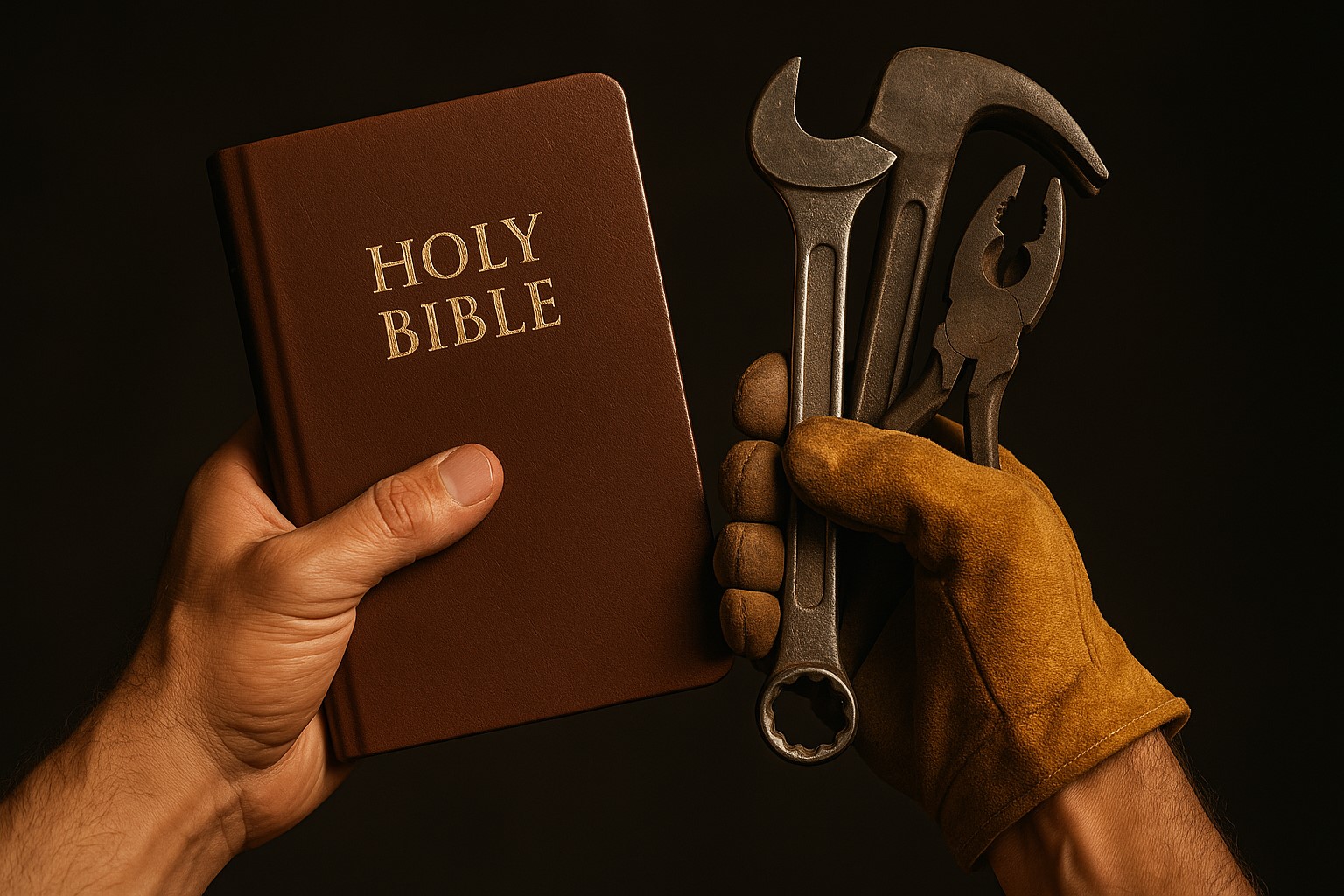“Whatever you do, work at it with all your heart, as working for the Lord…”
-Colossians 3:23-24
Own It Because He Owns You
In the military, business, and even sports, the phrase extreme ownership has become popular. It’s the idea that leaders stop making excuses and take full responsibility for outcomes — good or bad. No finger pointing. No blame games. Just ownership.
But long before leadership gurus made it a bestseller, Paul gave the Colossians the spiritual version: Whatever you do, do it with all your heart, as working for the Lord.
That’s extreme ownership at its highest level. Why? Because it shifts the focus away from us and places it on Him. Ownership begins when we recognize we don’t actually own our lives at all — He does.
Think about it: Christ paid for you with His blood. You are His. And if He owns you, then the way you live, work, and serve must reflect Him. Excuses won’t cut it. Blame won’t cover it. He deserves your best.
The Everyday Battlefield
Extreme ownership isn’t only for Navy SEALs, CEOs, or pastors. It’s for parents raising kids, truck drivers hauling loads, business leaders making tough calls, and students grinding out exams. Every one of us wakes up daily on the battlefield of the ordinary.
Most of life doesn’t look like a pulpit moment or a viral testimony. It looks like folding laundry, leading staff meetings, checking compliance files, sitting in traffic, paying bills, or repairing a leaky faucet.
Yet Paul says: Whatever you do. That’s not limited to the “big” tasks. It includes the things nobody applauds, the jobs nobody thanks you for, the sacrifices no one else sees. And here’s the beautiful truth: God sees it.
He’s not measuring the spotlight moments. He’s measuring the heart behind the ordinary ones.
Excuses or Ownership?
Let’s be honest: excuses come naturally.
-
“My boss doesn’t appreciate me.”
-
“My kids don’t listen.”
-
“The church isn’t feeding me.”
-
“I don’t have the time.”
We’ve all said them. We’ve all lived them. But here’s the problem: excuses chain us to mediocrity. They keep us stuck in cycles of frustration. Ownership, on the other hand, sets us free.
Paul wasn’t writing to a crowd of CEOs sipping coffee in an air-conditioned office. He was writing to believers in a culture where slaves, servants, and hard laborers made up the workforce. People who didn’t get recognition, benefits, or promotions. And yet, his instruction was clear: Work as though the Lord Himself signed your paycheck.
That’s not easy — but it’s transformative.
Faith + Responsibility = Freedom
Here’s the paradox: when you stop dodging responsibility and start owning it with God, you actually find freedom. Why? Because you’re no longer enslaved to people’s opinions, approval, or applause.
Your boss might never notice. Your coworkers may never say “thank you.” But God notices. And His reward is eternal.
Ownership means taking responsibility for your character, your choices, and your calling — not because people are watching, but because God is.
And here’s the key: ownership doesn’t mean perfection. God isn’t asking you to never stumble. He’s asking you to own it when you do. To confess, to repent, to grow. That’s freedom.
A Story of Ownership
I once knew a manager who kept blaming his team for every failed project. Deadlines missed? He blamed their laziness. Numbers low? He blamed their lack of discipline. But when the company brought in a new leader, the culture changed overnight.
This leader said something simple but powerful: “If the team fails, it’s my responsibility. If they succeed, it’s their victory.”
Do you see the difference? One pushed blame downward. The other pulled responsibility upward. The first leader’s team lived in fear. The second leader’s team thrived in ownership.
Now apply that spiritually: Christ took extreme ownership of us. Our sin wasn’t His fault, but He bore it. Our punishment wasn’t His to carry, but He carried it. That’s what the cross was — extreme ownership.
And if He could take ownership of what wasn’t His fault, how much more should we take ownership of what is our responsibility?
Living Ownership Daily
So how do we actually live this out? Here are a few practical ways:
⭐ Show up fully – If you’re at work, give your best. If you’re with family, be present. Don’t half-serve in any role.
⭐ Refuse to blame – When things go wrong, don’t point fingers. Ask, What can I do differently next time?
⭐ Treat every task as worship – Whether you’re signing a contract, sweeping a floor, or studying Scripture, do it like God Himself asked you to.
⭐ Repent quickly – Ownership means admitting when you’re wrong. Pride delays it. Humility owns it.
⭐ Remember your “why” – You’re not working for a paycheck or applause. You’re working for the Lord.
Mirror Moment (Reflection)
Pause for a minute and honestly ask yourself:
-
Where am I making excuses instead of owning responsibility?
-
Do I see my work as serving people, or serving God?
-
How would my effort change if I treated every task as holy ground?
-
What’s one step today where I can shift from blame to ownership?
Prayer
Heavenly Father,
Thank You for trusting me with both the big and small responsibilities in my life. Forgive me for the times I’ve made excuses instead of giving You my best.
Teach me to see every task — from the ordinary to the overwhelming — as an act of worship.
Fill me with courage to own my choices, humility to admit when I fail, and strength to rise again with Your grace. Help me work with integrity, not for human applause, but to honor You.
May my life reflect faithfulness, excellence, and a heart that serves You above all.
In Jesus’ name, Amen.
God bless, and let’s keep Him first in everything we do.
For more uplifting devotionals and prayers, visit God First Life.
Dan Greer

